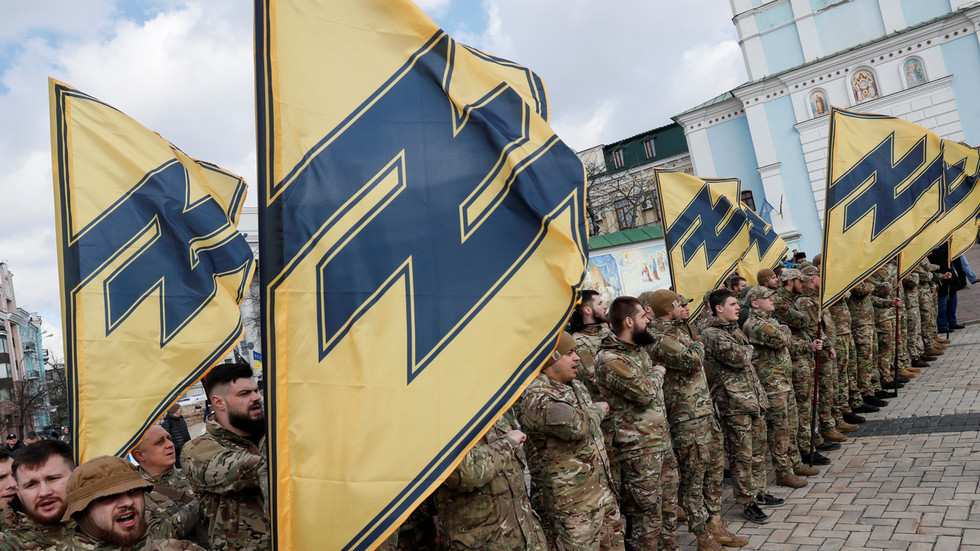
Published 26/09/2023 14:28 | Edited 09/27/2023 16:18
The fall of the Berlin Wall and the consequent destruction of the Soviet Union caused the reorganization of the then bipolar world order that contrasted the capitalist and socialist systems. The first led by the United States of America and the second led by the Union of Soviet Socialist Republics. After the destruction of the USSR and the end of the Cold War, the world order was oriented towards the unipolarity of the capitalist model under the leadership of the USA.
The unipolar system led by the North American country since the beginning of the 1990s did not take long to show its incapacities and insufficiencies towards emerging countries. In fact, the unipolar world order presented itself in practice as a form of contemporary neocolonialism that served Western countries to guarantee political, economic and even territorial control over countries in the global south. Global governance was organized to serve the interests of the self-proclaimed “civilized world” to the detriment of others.
During the first decade of the 2000s, emerging countries began to articulate themselves more assertively and new organizations and initiatives emerged without the presence of the order’s countries. The BRICS initiative (Brazil, Russia, India, China and South Africa) and the OCX (Shanghai Cooperation Organization) are, perhaps, the main examples of this new geopolitical moment and the initial milestones in the transition from the unipolar world to the multipolar.
Despite Washington’s constant refusal to say that such initiatives, especially the BRICS, do not represent a rivalry to the leadership of the United States on the geopolitical board, the fact that the de-dollarization agenda of the world economy represents a serious threat to the North’s economic supremacy is undeniable. American.
Read too: War in Ukraine: conditions for peace
Another factor that must be taken into account is the solid rise of the Chinese economy, which has already become the largest in the world based on purchasing power parity and should also become the largest in absolute numbers in the coming years. Still, from a commercial point of view, China is today the main partner of more than 120 countries, which constitutes another clear evidence of the end of the economic hegemony of the United States.
As part of a natural process, humanity moves towards progress. And the unipolar order is transitioning to multipolarity, with the dispersion of centers of political and economic influence across the globe. Regarding the transition from an old system to a new one, JV Stalin stated in an interview with HG Wells:
“… the replacement of one social system by another is a complicated and long revolutionary process. It is not simply a spontaneous process, but a struggle, it is a process linked to the clash of classes.
And every time the people of the new world came to power, they had to defend themselves against the attempts of the old world to restore the old power by force…” (Stalin, 1934).
In the same interview, Stalin still classifies fascism as a reactionary force trying, through violence, to preserve the old system. Statements that, despite being made almost 9 decades ago, help explain the conflict between Russia and NATO, which has Ukraine as its central stage.
Ukraine, epicenter of Nazi fascism in the 21st century.
The Ukrainian region, which was previously a territory of the Russian empire, has a history of ultra-nationalist separatist movements. During World War II, in Soviet Ukraine, one of the most relevant movements of collaboration with German Nazism was organized under the leadership of Stepan Bandera, a Ukrainian supremacist who organized attacks alongside the Nazi invader against the Soviet people themselves.
Read too: 78% of Ukrainians say Zelensky bears responsibility for corruption
In Ukraine, more and more monuments in honor of the notorious Nazi-fascist collaborator are being erected. And during the decades following the end of the Soviet Union, openly Nazi organizations began to strengthen across the country. During the 2010s, the Western media itself produced numerous reports on the topic: BBC, Reuters, The Guardian, Vice. Recently, even The New York Times could not ignore the avalanche of Nazi symbols among Ukrainian troops on the battlefront.
Even Brazil is a victim of the neo-Nazi explosion that took place in Ukraine. In 2016, the Federal Police organized Operation Azov, which identified branches of the Ukrainian Azov battalion in the state of Rio Grande do Sul as well as the recruitment of Brazilian neo-Nazis to fight in the war in Ukraine that has been going on since 2014, as a result of the coup d’état financed by the USA and popularly known as “EuroMaidan”.
On September 22, during Zelensky’s visit, in the presence of Canadian Prime Minister Justin Trudeau, Canada’s parliament gave a standing ovation to a 98-year-old Ukrainian Nazi fighter. Even though he officially apologized, due to pressure exerted by the Jewish community, his intention in honoring a Nazi soldier was clear and should not simply be ignored.
Stalin’s definition of Nazi-fascism is being ratified by the current political situation and the succession of facts over the last two decades. Why are the gentlemen of the unipolar world betting so heavily on Ukrainian neo-Nazism? Now, if Nazi-fascism is the reactionary force willing to use violent methods to preserve the old system, then Nazi-fascism is the first-time ally of those who seek to interrupt the rise of the multipolar order, the new system of global governance.
Russian resistance in Donbass.
Immediately after the 2014 coup d’état took place in Kiev, the ethnically Russian people in Lugansk and Donetsk refused to recognize the legitimacy of the new government and, alongside Crimea, held popular referendums where the vote to separate from the central government of Ukraine prevailed. .
And this was due to the immediate repression and persecution by the Ukrainian Nazis against the country’s ethnic minorities, where Russians ended up becoming the priority target. The war in Donbass that has been going on since then had killed more than 14 thousand people even before the Russian intervention in Ukrainian territory.
Read too: Pressure to end the war in Ukraine grows where least expected
The Russian Federation sought to resolve the situation through diplomatic means through the Minsk Agreements. For 8 years, Russia advocated for compliance with agreements in the most diverse international spaces and forums. The agreements, however, were never fulfilled and even the former German Chancellor, Angela Merkel, admitted that the sole purpose of the agreements was to allow Ukraine to gain time to develop and obtain the necessary support from the West.
The memory of the Nazi aggression that cost the lives of 27 million Soviets during World War II remains vivid among the Russian people. Almost every family has a loved one who fought against the invader during the Great Patriotic War, as the conflict is known in Russia. Therefore, a firm response to a new Nazi-style aggression would simply be inevitable.
The special military operation launched by the Russian Federation on Ukrainian territory aims to demilitarize and denazify Ukraine, protect ethnic Russians from recurring neo-Nazi attacks in the Donbass region, in addition to valuing the territorial integrity of Russia itself. The start of the war, however, was also accompanied by a civil response.
In September 2022, the popular referendum took place for the accession of the regions of Lugansk, Donetsk, Zaporozhye and Kherson to the Russian Federation. As with Crimea in 2014, the population of the four regions voted in favor of becoming part of Russian territory. The international community immediately condemned the referendum and classified it as illegitimate.
Interestingly, this same international community recognized, in Venezuela, a guy who proclaimed himself president of the Bolivarian Republic without having even had a single vote for it. This was the case of Juan Guaidó, who was received with the pomp of a head of state by several Western countries after attempting a failed coup d’état without popular support.
Furthermore, this same international community organized international electoral observation missions to manipulate reports and interfere in electoral processes, as happened in Bolivia in 2019. After the fraudulent report by the Organization of American States, accusing Evo Moralez of electoral fraud, Jeanine Áñez declared herself president of the Plurinational State of Bolivia and was also promptly recognized by Western countries, without having had a single vote for it.
International recognition of domestic processes is important, but only when it serves to ratify the popular will expressed in such processes. When it serves as an instrument to promote external interference and manipulate public opinion, it loses all legitimacy. After all, the greatest legitimizing factor in any political process is the people.
And again the people of Donbass gave their message to the hypocritical international community, where only Western countries have a voice. During the regional elections that took place between September 8 and 10 in the Russian Federation, the significant participation of Donbas residents in the electoral process played a legitimizing role in the entire historical process unfolding in the region.
Even in such a delicate moment of armed conflict, the population of Donbass went to the polls to elect their municipal and regional representatives, in addition to definitively integrating into the political system of the Russian Federation. In other words, regardless of external opinions, the Russian people of Donbass remain firm in their resistance against the new Nazi aggression and in their return home, which tends to be a path of no return and the great milestone of rupture from the old unipolar order to the new multipolar world.
Source: vermelho.org.br

